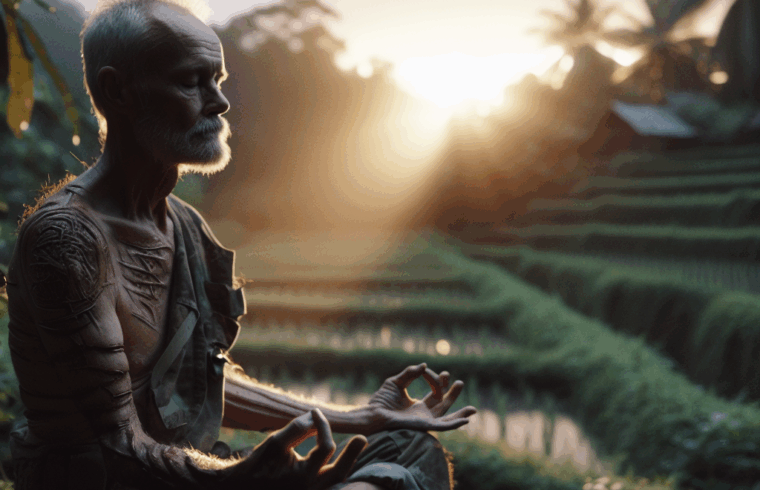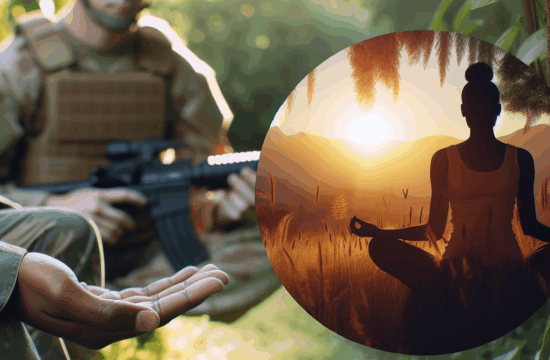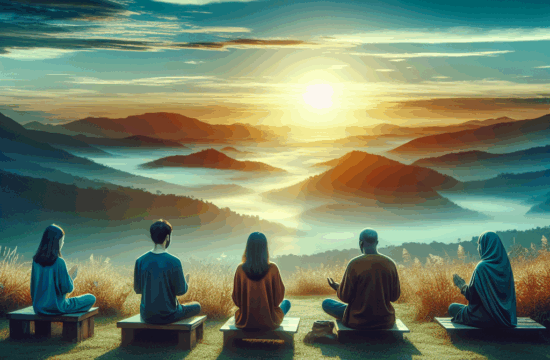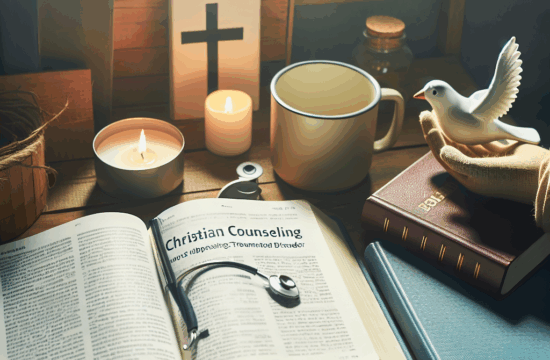==> Thank you for reading this post! Click Here If you are looking for support and Victory over PTSD.
Mindfulness and Meditation
Understanding Mindfulness
Mindfulness is more than just a buzzword; it’s a practice that can fundamentally change how we approach stressful situations. As a veteran, I’ve found that being present can help dim the noise of lingering memories and anxieties. Instead of constantly experiencing the chaos of my thoughts, I learned to zero in on the “here and now.”
This doesn’t mean that the thoughts disappear; rather, it allows me to observe them without judgment. It’s like standing on the sidelines of my own life instead of being caught up in the game. This realization alone has been a game-changer for me and so many others I’ve spoken with.
Making mindfulness a habit takes work, but even a few minutes a day can lead to significant improvements in emotional health. Whether through guided sessions on YouTube or just a few minutes of deep breathing, it’s worth trying.
Benefits of Meditation
Meditation can feel intimidating at first, but its rewards are immense. It promotes relaxation, sharpens concentration, and even fosters greater self-awareness. Whenever I sit in quietude, I can feel the burdens of the day lift, if only just a bit.
Furthermore, I’ve learned that it’s okay to start small. Those little increments can snowball into a more consistent practice where I actively seek moments of stillness in a bustling world. The benefits compound over time, creating a sanctuary of calm.
Integrating meditation into my daily routine has not only aided in distress management but has also enriched my overall perspective. Feeling centered helps me tackle the challenges life throws my way.
Finding the Right Technique
Not every meditation style works for everyone. Some folks might prefer mantra meditation, while others vibe better with guided imagery. It took me a bit of experimenting to discover what resonates with me. Sharing experiences with fellow veterans also opened my eyes to different techniques that I wouldn’t have considered.
There are even movement-based meditations like yoga, which can be a fantastic option for those of us who find it hard to sit still. I’ve found that syncing breath with movement can elevate the practice to something more meaningful.
Ultimately, finding the right meditation style is a personal journey. Dive deep into what works for you, and don’t be afraid to switch it up as you evolve. Growth can only happen when we remain flexible.
Connection to Nature
The Healing Power of Nature
Nature has an uncanny ability to heal. Spending time outdoors can shift my mood in ways that just being indoors can’t. The simple act of breathing in fresh air and soaking up the sun can ground me and bring much-needed clarity.
Whether it’s a walk in the park or a hike up a mountain, getting outside connects me to something bigger than myself. I’ve found that allowing nature to envelop me brings a serene sense of belonging, especially on days when I feel isolated.
It’s fascinating how the sights and sounds of the great outdoors can serve as therapy without the hefty price tag. I challenge anyone I speak to—especially fellow veterans—to make a habit of getting outside, even if it’s just for a short while.
Building a Routine Around Nature
Establishing a routine that includes nature can be so impactful. I’ve committed to regular weekend hikes with friends, turning it into a social event. Not only am I enjoying nature, but I’m also reconnecting with humanity in the process. It’s a win-win!
Mixing physical activity with nature exploration is another added bonus. Whether biking, jogging, or simply walking, it reinvigorates my body and spirit. Additionally, since I have a tendency to feel cooped up, I make it a point to get outside even during busy weeks.
Take small steps initially. Set a reminder to walk around the block or visit a nearby park, and build from there. You’d be surprised how these little excursions can rejuvenate you mentally and emotionally.
Engaging with the Community
In my experience, nothing beats the healing power of sharing stories with others who understand. Joining outdoor programs specifically designed for veterans can foster connections that help ease the feelings of loneliness or alienation.
Working together on community projects, such as park cleanups or trail maintenance, can bond you with others in ways that can’t be measured. I cherish these shared moments of laughter and camaraderie, which remind me I’m not alone in this journey.
Collaboration with organizations that emphasize the healing aspects of nature—like veteran-specific retreats—can also provide focused support. These experiences create an open dialogue, allowing us veterans to share our struggles while simultaneously expanding our support network.
Spiritual Exploration and Growth
Finding Personal Meaning
Every veteran has a unique story, filled with trials and triumphs. Reflecting on my experiences has led me to realize how essential it is to dig deep and find personal meaning through life’s challenges. What does all of this mean? That’s the million-dollar question.
I have found that personal growth often arises from adversity. When I look back on my journey, the hardships have often been the catalyst for profound self-understanding. It’s a tough pill to swallow, but the reality is that finding meaning can pave the way for healing.
Engaging with my inner self and questioning the ‘why’ behind everything helps create a sense of purpose. Journaling can also aid in this exploration, as it offers a space to articulate these thoughts that often swirl in my mind.
Get Support and Help with Recovery! Visit us for more Information and Support
Embracing Different Spiritual Practices
There’s no one-size-fits-all approach when it comes to spirituality. I’ve explored various practices—from traditional religious affiliations to more eclectic spiritual paths. This diversity has opened me up to a wealth of insights and tools I never knew existed.
Finding a spiritual community can also provide profound support. I’ve attended different services and gatherings, and it’s amazing how just being around like-minded individuals can foster strength and comfort. Know that you’re not alone in this quest for meaning.
Whether it’s prayer, meditation, or simply reflective walks, each practice serves to ground me. Explore what resonates with you, and don’t be afraid to switch gears if something doesn’t feel right.
Honoring the Journey
It’s crucial to honor your journey. No matter how challenging, each step taken shapes your path. Bringing awareness to milestones—both big and small—can be empowering and uplifting. Whether it’s acknowledging a day of mental clarity or finding peace in tough times, each moment is significant.
I often find it helpful to celebrate these milestones with others who understand the journey, amplifying the experience. Sharing with fellow veterans allows us to lift each other up while recognizing the hard work we’ve put in.
In conclusion, embracing the entire journey—complete with its ups and downs—allows for deeper understanding and acceptance. It’s essential to recognize that healing is not linear; it’s a magnificent mix of twists, turns, and growth.
Building Healthy Relationships
The Importance of Connection
As a veteran, forging connections with others can sometimes feel daunting, but the importance of these relationships cannot be overstated. Healthy relationships serve as a support network that can uplift and inspire.
Through my personal experience, I’ve learned that both vulnerability and open communication are foundational to building trustworthy relationships. When I share my experiences, I create space for others to do the same, fostering true connection. It’s through these authentic exchanges that I often find the most healing.
Reaching out—whether it be friends, family, or new acquaintances—can help bridge feelings of isolation. Remember, it’s okay to seek support and to lean on others when the going gets tough.
Nurturing Relationships
Building connections is one thing, but nurturing those relationships is where the magic happens. Being there for one another during tough times can solidify bonds and solidify friendships. It’s about putting in the effort to say “I’m here for you.” Dates with friends or even a simple phone call can maintain that spark.
I make it a point to invest time and energy into my friendships, from surprise meet-ups to just checking in with a text. These small acts ensure we stay connected and supported. It’s amazing how these relationships flourish with just a little attention.
Moreover, offering support in return goes a long way. Relationships are a two-way street, and being there for my friends fills me with both purpose and fulfillment. Finding ways to contribute to each other’s lives enhances the depth of our connections.
Setting Healthy Boundaries
Alongside connection, it’s vital to establish healthy boundaries. Being clear about what I need—emotionally and mentally—has helped strengthen my relationships. I’ve learned that it’s okay to say “no” when I need my space.
Communicating these boundaries can be uncomfortable initially, but in the long run, it creates healthier dynamics. I find that friends appreciate honesty and openness, which reinforces trust.
Ultimately, crafting relationships that honor who you are—including your limitations—can provide the most meaningful support in the long run. It’s about finding a balance that enriches everyone involved.
Conclusion
In my experience, embracing spiritual strength as a wounded veteran involves understanding mindfulness, connecting with nature, exploring spirituality, building healthy relationships, and embracing the unique journey we’ve all been on. It’s a nuanced path, but with intent and practice, we can overcome the hurdles and find a balance that brings peace and resilience in our lives.
FAQ
1. What is the importance of mindfulness for veterans?
Mindfulness helps veterans find grounding and clarity, reducing stress and anxiety from lingering memories by focusing on the present moment.
2. How can nature aid in the healing process?
Nature’s tranquility has healing powers, providing a space to reflect and connect while also increasing feelings of belonging and community.
3. Are there specific spiritual practices recommended for veterans?
It varies individually, but exploring meditation, prayer, or simply engaging in reflective walks can enhance one’s spiritual journey.
4. Why are relationships crucial for veterans?
Healthy relationships provide emotional support and connection, helping to alleviate feelings of isolation and share experiences with others who understand.
5. How do I start building a routine that includes mindfulness and nature?
Begin with small steps, such as dedicating a few minutes each day for mindfulness practices or making time for outdoor activities weekly, building from there.













